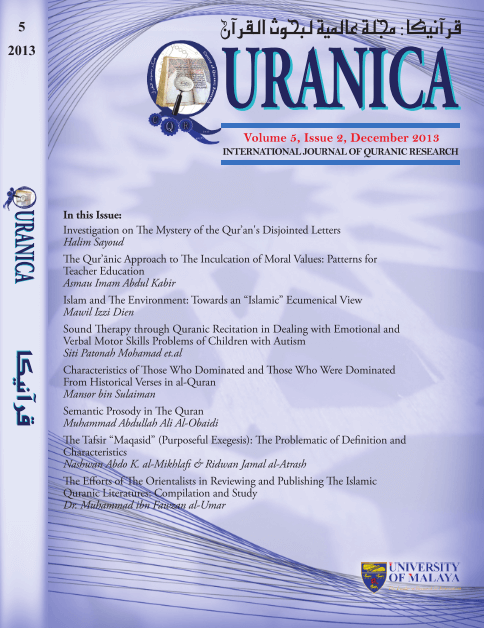The Qur’ānic Approach to the Inculcation of Moral Values: Patterns for Teacher Education
Main Article Content
Abstract
Moral education has long been an important and intrinsic aim of learning. Schooling aims not only to make people smart, but to also make them good citizens equipped and readily prepared to exercise moral values. However, with the increased pace of change in the world today, the moral purpose of education has been relegated to the background as the vocation oriented demands of capitalist markets centered mainly around the provision of skilled individuals who are philosophically ready to fill the gap in the job-market. As a result, moral values have been overwhelmingly marginalized even by the teachers of Islamic education, and when it is taught, it is often not compatible with the nature and objective of Islāmic education. Thus, teaching Islāmic education in schools has been unable to achieve its aim, mainly due to the lack of an effective Qur’ānic based approach and methodology when teaching moral values. The present study explores the approaches used by the Qur’ān and in its historical narratives in inculcating moral values. This includes storytelling, modelling (qudwah), practical demonstration, the instruction method, the question method, conversation and dialogue, repetition, and practical demonstration. The objective is to examine how these approaches could be integrated into teacher education of moral values.
Downloads
Article Details
Disclaimer
QURANICA makes every effort to ensure the accuracy of all its contents. However, opinions, discussions, views and recommendations are expressed in this journal do not necessarily reflect the official policy of QURANICA or views of its editors or publishers. Therefore, QURANICA and its publishers will not be liable for any controversy may be arisen. The journal reserves the right, at its sole discretion, to change its terms and conditions of publications.
Copyright
It is a condition of publication that manuscript submitted to the journal have not been published, accepted for publication, nor simultaneously submitted for publication elsewhere. By submitting a manuscript, the author(s) agrees that copyright for the article is transferred to the publisher, if and when the manuscript is accepted for publication.
